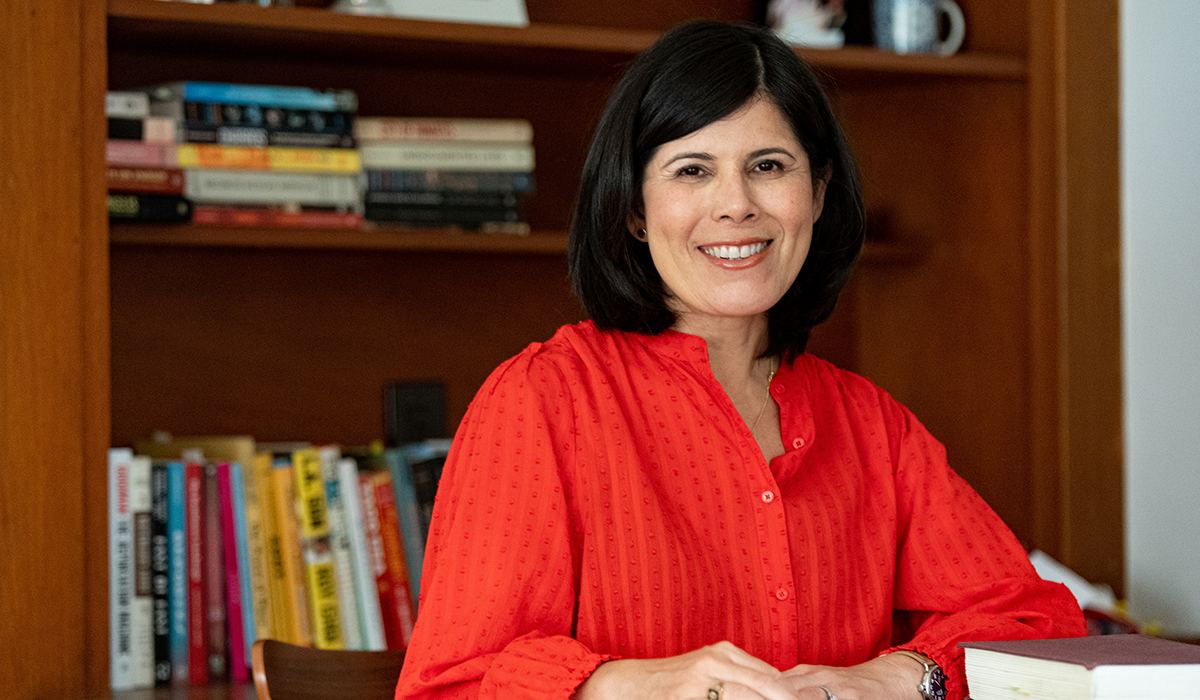When people learn that Natalia Molina, MA’96, PhD’01, studies race, immigration, and citizenship, they tell her, “Wow, what an important time to be doing that.” Molina responds, “It’s always an important time.”
In October 2020, Molina, a professor of American studies and ethnicity at the University of Southern California (USC), was one of 21 recipients of the prestigious MacArthur Fellowship, a no-strings-attached grant of $625,000 paid out over five years. The award cited Molina’s theory of “racial scripts,” which explains “how certain attitudes, stereotypes, and policies of exclusion have been adapted and applied to different marginalized groups across historical periods and geographies.”
But it is the reaction to her teaching that she finds most rewarding. “I am always amazed,” she says, “by how many students will come up to me and say, ‘I never knew about Japanese internment camps or mass deportations of Mexicans during the Depression. Why did I never learn about this before?’”
Molina is the author of two award-winning books. Her first, “Fit to Be Citizens? Public Health and Race in Los Angeles, 1879-1939” (University of California Press, 2006), explores the targeting of Mexican, Chinese, and Japanese immigrants as menaces to public health. She also shows how perspectives toward these groups shifted over time and in relation to one another. “The attitudes, policies, and the stories that we tell about one group set the stage for how we treat other groups,” Molina explains.
Her second book, “How Race Is Made in America: Immigration, Citizenship, and the Historical Power of Racial Scripts” (University of California Press, 2014), traces the arc of Mexican immigration from1924, when American law drastically reduced immigration into the United States, to 1965, when many quotas were abolished. The book details the historical reasons why Mexican Americans are still not deemed fully American and are largely equated with illegality.
Now, Molina is researching and writing a history inspired by her childhood growing up in Echo Park, a multiethnic neighborhood in Los Angeles. The book, titled “Place-makers: The Story of an Ethnic Mexican Community in Twentieth-Century Los Angeles,” focuses on the Mexican restaurant El Nayarit, on Sunset Boulevard. It was founded by her grandmother, Natalia Barraza, in 1951 and later owned by her mother. “It’s a book about my grandmother’s generation,” Molina says.
The restaurant, now gone, was much more than a popular eating spot, she explains. It was, she says, “an urban anchor offering both the customers and the workers a rare opportunity for belonging” — a “fictive kinship” network and “safe harbor” that attracted Hollywood celebrities such as Marlon Brando and Rita Moreno, Latinx baseball players such as Juan Marechal, and others.
According to Molina, one of the aims of “Place-makers” is to answer the question, “How do you write a history of a place that has no archives?” In addition to gathering oral histories, she found she could mine Mexican newspapers from that period, which were “almost like a Facebook for the time,” complete with gossip columns, business announcements, family photographs, and other news of immigrants who retained close ties to their native country.
Another current project is a book about the Huntington Library, Art Museum, and Botanical Gardens in San Marino, California, titled, “The Silent Hands that Shaped The Huntington: A History of its Mexican Gardeners.” Her research includes investigating “how people’s life chances are shaped by the kind of work they do.”
Molina is a 2020-21 Huntington Library Fellow, but the COVID-19 pandemic has closed the library’s archives. “So, I’m doing what historians do,” Molina says. “I’m reviewing the literature. I’m seeing what archives might be online. I’m reading widely and thinking about methods.”
Molina’s examination of the intersection between public health and immigration began at U-M. After graduating from the University of California at Los Angeles, she followed her undergraduate mentor, George J. Sanchez (now the director of the Center for Democracy and Diversity at the University of Southern California), to U-M’s top-ranked history program, where she also worked with professor Martin S. Pernick, a cultural and medical historian.
At U-M, Molina says she found “a vibrant intellectual community” that encouraged the crossing of interdisciplinary and school lines. “Your work is really speaking to a broader audience just by speaking to your Ann Arbor colleagues,” she says.
After U-M, Molina moved to the University of California at San Diego, where she taught in the departments of history and ethnic studies and the urban studies program. She also held a variety of administrative posts, including associate vice chancellor for faculty, diversity, and equity and associate dean for arts and humanities. She left for USC in 2018.
What Molina appreciates about the MacArthur is that it shines a spotlight on issues that have long animated her, spurring interviews and other invitations. “I never think about it as just my work, but as how my work influences, informs, motivates students to make changes,” she says. “Hopefully, people will learn about these histories of racial and ethnic communities and go on to make a more just world.”
Julia M. Klein is a cultural reporter and critic in Philadelphia whose work has appeared in The New York Times, The Wall Street Journal, Washington Post, Mother Jones, Slate, The Nation, and other publications. Follow her on Twitter, @JuliaMKlein.





